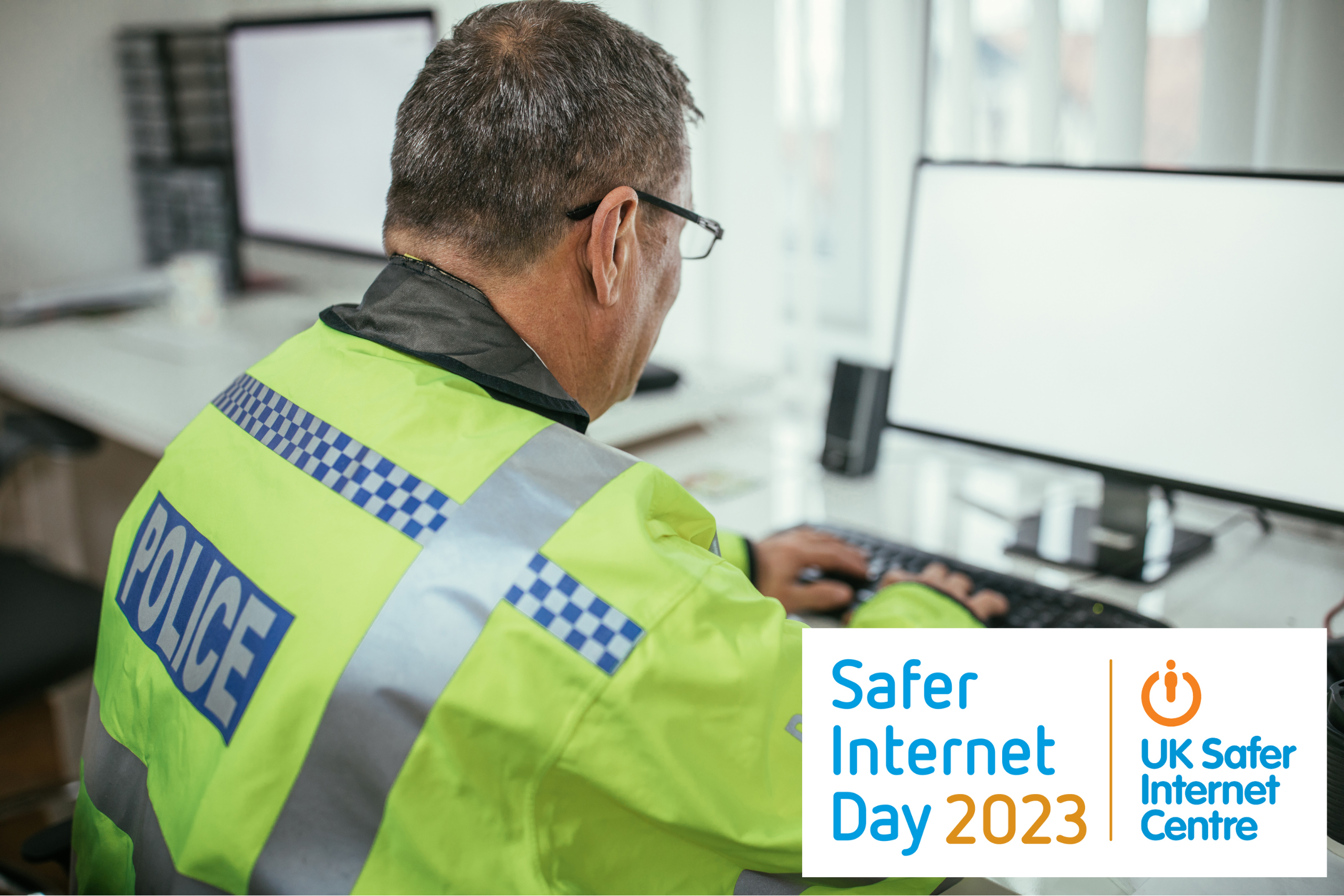The Police Cyber Crime Unit answer online safety questions for Safer Internet Day 2023

For Safer Internet Day 2023 we have teamed up with both the South Wales Police and North Wales Police Cyber Crime Units, representing TARIAN ROCU (South Wales Regional Organised Crime Unit) and TITAN ROCU (North West Regional Organised Crime Unit), to present a co-hosted webinar and highlight the importance of being safe online. When we use the Internet, we can access useful information and content, or shop and bank online, but we must also be mindful of fraud and online scams and understand how to prevent ourselves from being vulnerable.
Join us to explore the topic further by attending our English language ‘Online Safety’ webinar at 10am on the 8th of February. Register here.
What is Safer Internet Day?
Safer Internet Day is on Tuesday 7th February 2023. Safer Internet Day’s theme of ‘Together for a better Internet’ encourages us all to learn about staying safe whilst using the Internet. It is an international campaign that aims to raise the awareness of emerging online issues and current safety concerns. The United Kingdom’s resource page is hosted by the UK Safer Internet Centre and contains lots of useful learning content about different online issues as well as resources for organisations or schools.
As part of our Safer Internet Day celebrations, we’ve asked PC Steven Davies from South Wales Police Cyber Crime Unit to tell us more about crime online, how you can avoid being caught out, and where to go for further resources.
How does Cyber Crime Unit help Welsh citizens with online safety?
Within Wales we have four Police forces, each with a Cyber Crime Unit. As well as the forces, we have two Regional Organised Crime Units (ROCUs) in Wales. It’s almost a daily occurrence that we as a team come across or get asked for advice on crimes which have occurred online, as well as the weekly contact from Action Fraud, which includes details of those who have made reports directly to them. Following such reports, it would depend on whether the report is that of a criminal matter or a matter in which the best possible advice could be offered. As a Cyber Crime Protection Officer, I make every effort to contact a victim in person. Further to the contacts, efforts are made to hold public engagement events, liaising with partner agencies to reach as many people as possible within the force area.
What are the most common ways people are caught out online?
The most common way is through phishing. This is becoming far more sophisticated and such contact is appearing to be more authentic.
With social media platforms now being used by the vast amount of the general public, a phishing technique called social engineering is commonly being used by fraudsters. Social engineering encourages people to answer very personal questions to prey on personal and financial information. Posts often require answers to be shared, with the thread posted onwards or linked to another friend.
What’s the best advice you can give to someone about being safe online?
To stay safe online, the user should have strong anti-virus software, use strong passwords and not use the same password for every online account. Activate 2-step verification on all platforms that allow you to do so. This is free and really does add that extra layer of security. Don’t share personal details online and reduce the need to use free-public Wi-Fi. If required, do not use or refer to any sensitive information whilst using public Wi-Fi.
What resources are there available to learn more about cyber crime, and where can they be found?
There are many resources available, especially online. The National Cyber Security Centre (NCSC) have a very informative website to name just one.
As a Cyber Crime Protection Officer, I would be more than willing to engage with members of our communities within South Wales and provide the most appropriate protection advice through presentations. Members of the public, community groups and organisations can contact me to arrange a presentation by emailing Steven.Davies@south-wales.police.uk.
What should someone do if they think that they have been a victim of cyber crime?
Our strongest possible message to any victim of cyber crime would be to report it. Whether this be to their nearest Police Force, the Police Force that they are residing in, or likewise, we would signpost them to reporting such activity through to Action Fraud. Action Fraud then disseminate such contact to the most relevant force where there will either be further investigations conducted or at the very least, a call from the Cyber Crime Protection Officer to offer the most appropriate advice.
And finally, do you have a social media presence that people can follow?
As a department within South Wales Police, we work closely with our Communications Team to publicise any particular scams ongoing. We also share some very important advice with a view to reach people and enable them to take note of such messages. Our department use the twitter handle @SWPSpecCrime. Our colleagues in North Wales use @NWPCyberCrime.
Spread the word
You can get involved in #SaferInternetDay by:
• Visiting www.saferinternetday.org.uk
• Following @UK_SIC on Twitter
• Joining the national conversation using #SaferInternetDay and #SID2023
• Liking UK Safer Internet Centre on Facebook
• Following @DC_Wales on Twitter, and Digital Communities Wales on Facebook
• Following @UK_SIC on Instagram

